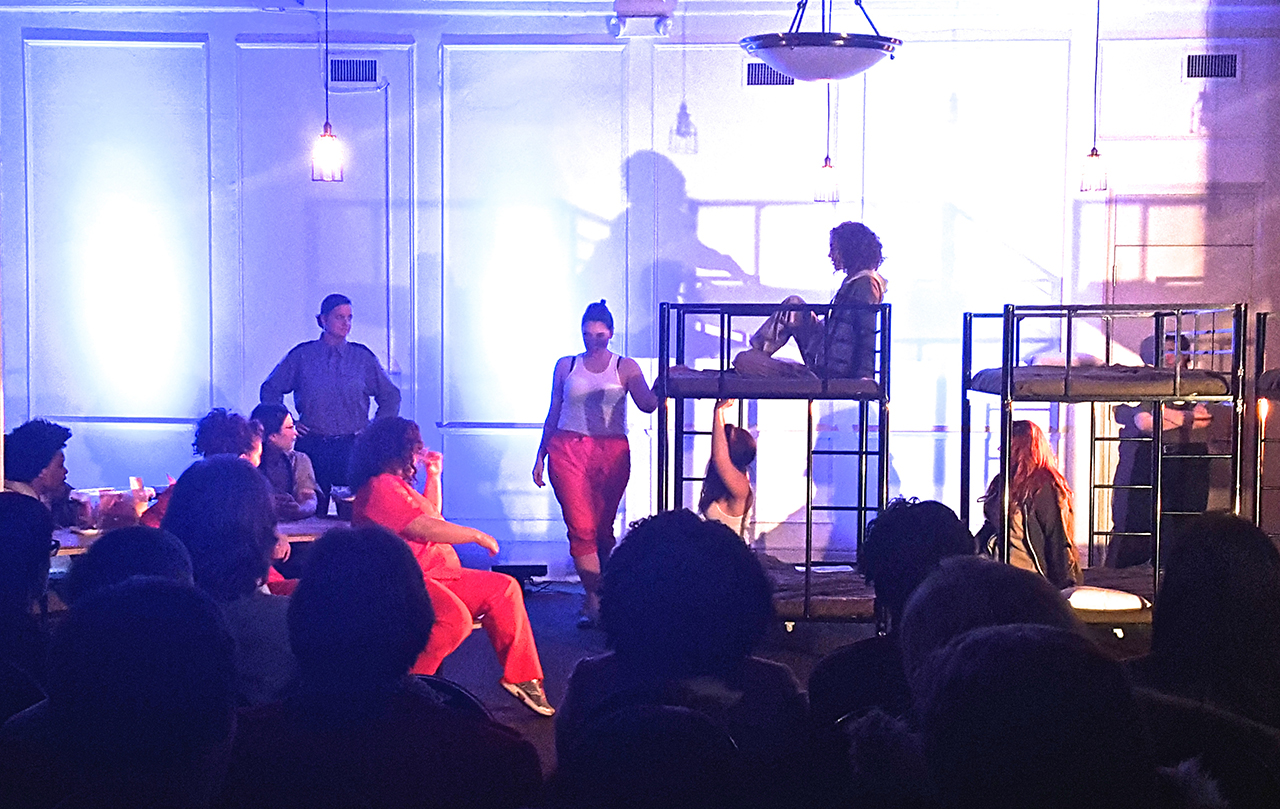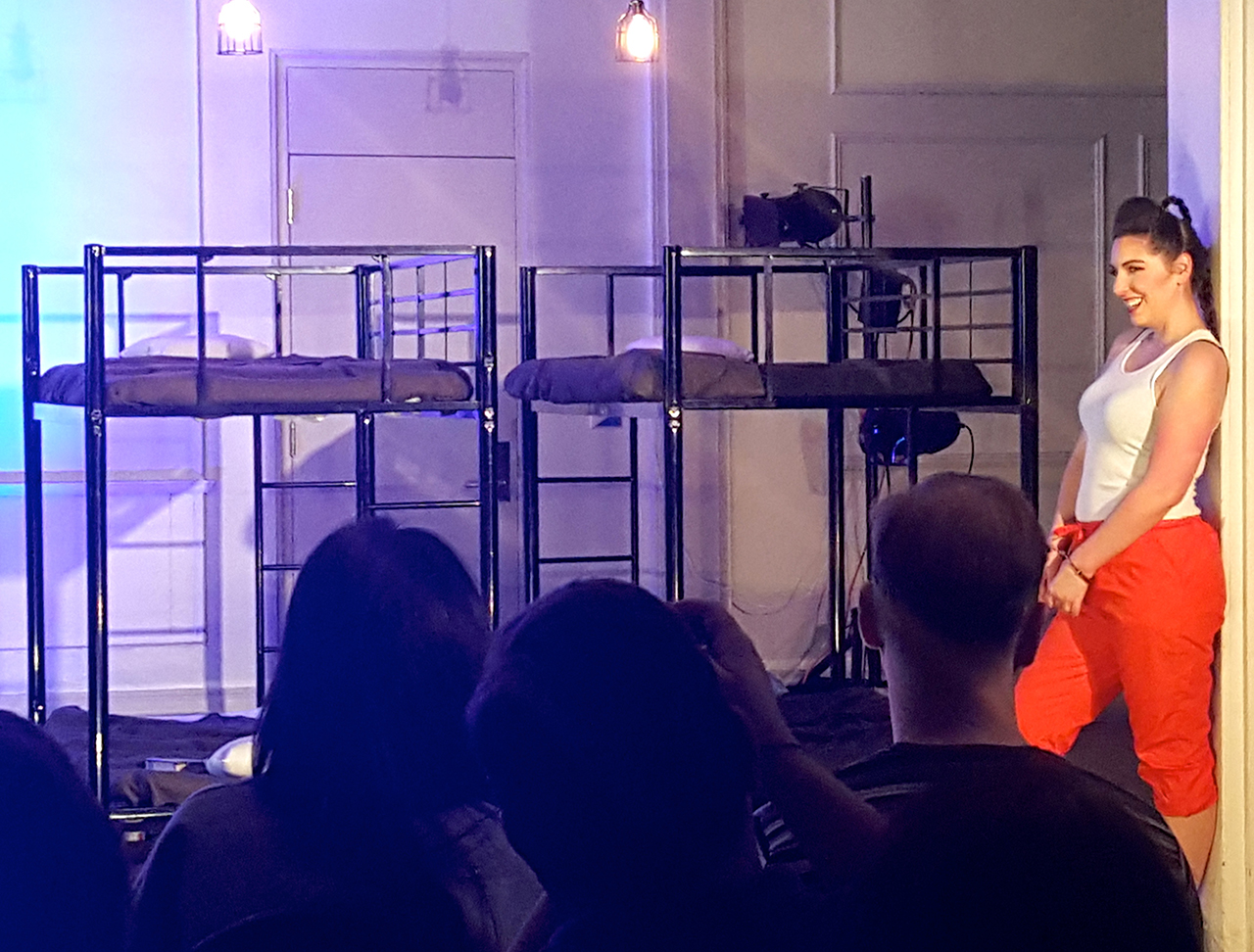
Opera Modo gender-bends classic opera for a contemporary audience
Above: A performance of “Habanera,” one of the most popular songs from “Carmen.”
Founded in New Jersey in 2011 by Danielle Wright, Opera Modo is Detroit’s newest operatic institution. This weekend was the opening of “Carmen,” Opera Modo’s fifth production since moving to Detroit in 2013. Made possible by a Knight Arts Challenge grant, the first two of four performances took place this weekend at the Carr Center (another Knight Arts Challenge winner), with the final pair of performances scheduled for this weekend at the Jam Handy Building on Grand Boulevard.
Wright’s ambitions in founding Opera Modo range from simple to radical. Simply put, she wants to ensure that the operatic form retains relevance and cultural support, even as its primary fan base–and source of financial backing–ages. More radically, Wright seems to be investigating the applicability of opera’s classic tales to more contemporary struggles. In pursuit of both these aims, Opera Modo’s take on “Carmen” reframes Georges Bizet’s tale of a solicitous Gypsy woman, Carmen, and a volatile soldier, José, as taking place in a women’s correctional facility–an open reference to the popular Netflix series, “Orange is the New Black.”
This prison setting is an interesting opportunity to investigate the power imbalance between Carmen—who, at her core, is a champion of liberated sexuality—and José, who is both a victim of Carmen’s inconstant attentions, and ultimately (spoiler alert!) her murderer. Taking this exploration of gender identity and violence to the next level, half the performances feature Carmen (in this iteration, an inmate) and José (a prison guard) in gender-reversed casting.

Jennifer Trombley as Carmen.
I happened to be at one of the gender-normative presentations, which centered around an extremely dynamic performance by mezzo-soprano Jennifer Trombley in the titular role, against Shawn McDonald as José. Raising awareness of violence against transgendered people is clearly a point of personal passion for Wright, who asked for a moment of silence while introducing the evening’s performance for the victims of transgender violence, including five transgendered women in the area who have been murdered in just the past two years. Wright has previously worked in developing action plans around sensitivity for LBGTQ youth and culture with the Ruth Ellis Center–an organization that seems to be a primary interlocutor with a number of arts projects in the city, including some of Nick Cave’s Knight-funded DanceLab performances last summer.
Opera Modo also made the decision to forgo supertitles, the automated screens that opera houses typically employ to translate European operas from their source languages. “I feel like we’re not doing our job as actors if it needs to be translated,” Wright said in her opening remarks. Instead, a helpful synopsis of the plot–which differs slightly from the original, based on the new framework–is provided in the program.
It can often be disruptive to the experience of opera to focus overmuch on literal translation; the real point of the form is the singing and the drama. A cursory understanding of the flow of each scene is really more than enough to sit back and enjoy a performance, especially one as catchy as “Carmen,” well understood to be one of the most popular operas of all time–or, as Wright put it, “the gateway opera.” Even those who would swear opera to be a completely alien genre might recognize “Habanera,” Carmen’s opening anthem, which highlights the flightiness of her affections, or the “Toreador Song” that is a celebration of the boxing achievements of another character, Escamillo. Escamillo, who acts as romantic foil to José, is played terrifically by Joe Johnson, and “Toreador Song” is the highlight of the first act, with the entire cast coming together to stage a mock boxing match.
Here is perhaps where we meet some of the tensions of an adapted story. While the Toreador sequence is a highlight of the show, and indeed the entire chorus turns in wonderful renditions of the opera’s ensemble moments, the inferred reality of inmates being forced to box each other for entertainment–or trade sexual favors to prison guards–is, of course, hugely problematic. In general, the liberated songs of the ladies ensemble in “Carmen” take on biting irony and poignancy when delivered by a cast dressed in prison uniforms. To sing of love as an uncaged bird is one thing in the context of a freewheeling barmaid, and quite different from knowing why the caged bird sings.
Catch “Carmen” before it flies away. Tickets for the second weekend are available online, with mezzo-soprano Bryan DeSilva taking the helm as Carmen for the final two performances.
Recent Content
-
Artsarticle ·
-
Artsarticle ·
-
Artsarticle ·

